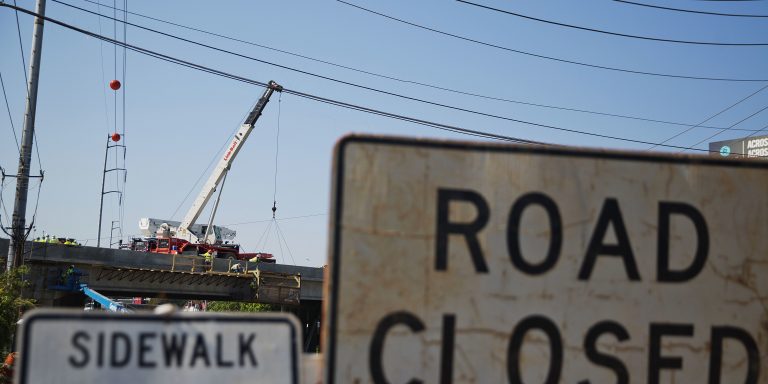INTELBRIEF
December 19, 2017
TSC IntelBrief: U.S. Infrastructure a Serious Threat to National Security

• On December 17, an 11-hour power outage at the world’s busiest airport, Hartsfield-Jackson in Atlanta, kept more than 1,000 flights on the ground, disrupting travel plans for tens of thousands of passengers.
• On December 18, at least three people were killed when an Amtrak passenger train derailed off a highway overpass, 40 miles south of Seattle, Washington.
• While the Trump administration prioritized potential foreign threats in its new ‘National Security Strategy’, the declining state of America’s physical infrastructure is a long-lasting hazard that many Americans must confront every day.
• Though existing U.S. infrastructure lags far behind other Western nations in performance and reliability, there is neither national agreement, nor any sense of mission, regarding the crisis.
The United States appears to have taken past generations’ investments in the country’s physical infrastructure about as far as they can go. Simply put, the physical state of many U.S. roads, waterways, rail, water and electrical transmission systems is among the country’s greatest national security threats—though most Americans have as yet to acknowledge the depth of the crisis.
On December 18, a speeding Amtrak passenger train derailed as it traversed a railway bridge above a major interstate highway near Seattle. All twelve cars left the tracks; several hung just over the highway, a locomotive fell and blocked Interstate Highway 5. Officials say at least three people were killed and around 100 injured in the accident, some critically. The train was on its first run between Portland and Seattle. It provided a much-needed option for a state, that like much of the U.S., lags far behind other industrialized nations in providing reliable and convenient passenger rail service. U.S. rail service may be spotty, especially away from the coasts, but fatal accidents of this nature are far from unknown. In 2015, another derailment near Philadelphia injured more than 200 people, killing eight.
On December 17, there was a total power outage at Atlanta’s Hartsfield-Jackson International Airport, the world’s busiest. The outage lasted around eleven hours, grounded more than 1,000 flights and stranded tens of thousands of passengers. It demonstrated that much of the U.S. economy and infrastructure rests upon single points of failure that often lack resilient backups in the event of emergency. Investigators believe a fire in an electrical substation caused the cascading blackout.
Meanwhile, more than half of Puerto Rico remains without electricity 90 days after Hurricane Maria devastated the island’s power grid; by far the longest and largest power outage in U.S. history. On the mainland, many of the electrical grid systems that power U.S. communities were built in the 1950s, around the time the Eisenhower administration launched the interstate highway system. Water and sewer lines in some major cities were built a century ago, or more. Vital subway lines in New York City and Washington, D.C. fail to provide essential on-time service as they crumble, from heavy use and institutional neglect. The status quo in far too much U.S. public infrastructure appears to be one of steady collapse.
More Americans suffer repeated, negative effects from inadequate, sometimes dangerous domestic infrastructure than from terrorism or the other threats outlined in President Donald Trump’s new National Security Strategy. Shortly after the Washington derailment, President Trump tweeted that he would submit his infrastructure plan to Congress. Yet up until now there has been little sense of national emergency, much less mission, in reinvigorating a one-time American achievement that has become a national embarrassment. Prioritizing the public good, with compromise solutions that can benefit all will be a challenge, given the current toxic political environment.
For tailored research and analysis, please contact: info@thesoufancenter.org